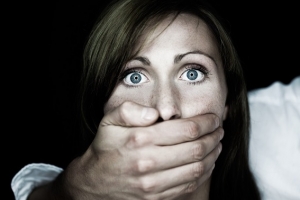Should state law require colleges and universities to involve law enforcement immediately in any report of sexual assault?

Currently, New Hampshire's 25 public or private colleges and universities aren't required to immediately report alleged crimes to local or state law enforcement officials.
The rules are different for public or private grade schools (K-12), including vocational schools.
Current state "Safe School Zones" laws say that:
“Any public or private school employee who has witnessed or who has information from the victim of an act of theft, destruction, or violence in a safe school zone shall report such act in writing immediately to a supervisor. A supervisor receiving such report shall immediately forward such information to the school principal who shall file it with the local law enforcement authority.”
What colleges in New Hampshire are doing
Because there is no state law requiring colleges and universities to report crimes, each school comes up with its own policy for when to reach out to law enforcement officials.
For example, three Dartmouth College professors are accused of sexual misconduct, but state and local law enforcement did not get involved in the investigation until well after the college acknowledged it was conducting an investigation of its own.
The federal Clery Act requires that colleges and universities publish daily and yearly reports on campus crime. The Clery Act doesn't require these reports to be sent to state or municipal police, but the reports are publicly available.
Pros and cons of a state reporting law
Colleges say they are communities unto themselves and that institutional discipline and investigation policies, as well as campus police, are sufficient to deal internally with criminal behavior, including allegations of a sex crime.
They argue that it should ultimately be the victim's choice whether or not to involve law enforcement. Students may be less likely to disclose a sexual assault to a college or university employee if they know the employee must immediately involve law enforcement.
Critics say that the absence of a college or university requirement to report crimes to law enforcement opens the door to a lack of rigorous enforcement or punishment when it comes to certain crimes. They believe local and state police are better equipped and trained to investigate serious crimes.
Others argue that law enforcement involvement prevents colleges from "sweeping crimes under the rug."
Should all schools -- from grade school to college -- be required to report crimes immediately to police? Tell us what you think.











Comments
Login or register to post comments